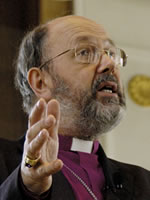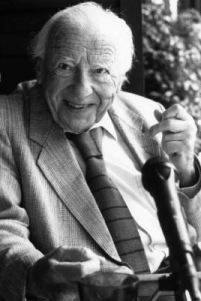
The Hebrew people loved to tell stories. The Hebrew Scriptures is nothing other than the collection of the great tradition of story telling which the people of God were involved in. But stories were not the same to the Hebrews as they are to us today. Most of us see stories as nice anecdotes or something you tell to kids before they go to sleep. No one takes them seriously though...
Tom Wright has done more than anyone in the field of the Biblical story, pointing out that the stories the people of God told were not just about conveying information, they were about changing lives. No part of the Old Testament is merely about information, everything that was taken down was done so to motivate action, everytime the Hebrews retold their story people were reminded they were part of the covenant God's role in redeeming the world. Even a cursory study of the Old Testament makes this obvious. For example compare the description of Manasseh in II Kings 21 and II Chronicles 33. In Kings the author portrays Manasseh as being entirely evil, whereas in Chronicles the author portrays him as middle of the road. Why the descrepency? Because Kings was written during the time of the exile when Judah had to be reminded of just how much they had broken their covenant with Yahweh and how just he was in punishing them with the exile to Babylon. In Chronicles we have a different situation. Judah is back from exile and now the people need to be reminded of Yahweh's faithfulness and the covenant faithfulness of his servants. Different contexts, different tellings of the same story. In the Hebrew mindset the Scriptures were not some static biography of God and his people, they were how God spoke to his people and to the world.
In the New Testament Wright points out that we find very much the same. "Paul expressed what the apostles all discovered: that this retelling of the ancient story, climaxing now in Jesus, carried power - power to change minds, hearts and lives." Or again "The apostles and evangelists believed that the power thus unleashed was God's own power, at work through the freshly outpoured Spirit, calling into being the new covenant people, the restored Israel-for-the-world. The 'word' was not just information about the Kingdom and its effects, important though that was and is. It as the way God's Kingdom, accomplished in Jesus was making its way known in the world."
Wright points out that we have forgotten about the context which the Scripture finds itself - the world yesterday, today, and forever. If as Christians we treat the word as a past event, we miss the point. The word of God is not just about a book we can hold and study, it is about the Kingdom proclamation that Jesus is Lord and Caeser (or any other worldly power) is not. We cannot seperate the reading and studying of God's word from his mission to the world.
"'The authority of scripture,' when unpacked, offers a picture of God's sovereign and saving plan for the entire cosmos, dramatically inaugurated by Jesus himself, and now to be implemented through the Spirit-led life of the church precisely as the scripture-reading community." Wright uses "reading" in a compact form for such things as liturgy, devotional reading, etc. The important point to note is that we don't stand outside of Scripture, we as Christians must see ourselves as part of it. We are explicitely included in the canon in such places as John 17 and 21, and also in the Book of Revelation, but certainly there is an implicit understanding that the Scriptures are the word of God to his Church, which we find ourselves in and from which we are to transform this world through the power of the Spirit.
The Scripture is the word of God because he still speaks through it with his Spirit and we are to use his word to change the world around us. It is not a collection of random stories, or even a story about understanding the world. Scripture is THE story which the whole world finds itself in whether it acknowledges Jesus Christ as Lord of the world or not. This is not a personal story about individual believers, it is the revelation and speaking of God, through with the Church brings the world to Christ, that we call the Bible. How did the apostles see the Scriptures? They told the story of the covenant God and his final action through his Son Jesus. But this was not just a nice story to accept mentally, the story changed lives through the power of the Spirit. Check out Acts 2 and following to get a feel for the power of God's word. Now we have that same story written down to us, but it is still living and active because it tells the same story of Jesus and God working to reconcile the world. That's why Wright emphasises that it is not the inherent authority of scripture that is most important (if even meaningful), but the "authority of the triune God, excercised somehow through scripture."
For postmodernism this seems to have two particular advantages:
1. Continental (and to some extent analytic) philosophy has stressed the importance of language. In fact postmodernity can sometimes be summed up in the idea of the "linguistic turn" a fuller understanding of how we speak and think. Heidegger and Nietzsche do battle with language and one incredible philosopher even says "everything which can be comprehended is language." Language as ontology. Whether or not one follows this extreme, clearly language is one of the most important aspects to being in postmodernity and the strong empasis on God's word through scripture plays perfectly into this. God's main mode of revealing himself is through his word, speah-acts, and ultimately in the Word of God himself: Jesus the Logos. The Word of God made flesh is a field ripe for postmodern heremeneutics and RO has only barely touched the surface which Augustine and Gregory of Nyssa had tread so long ago.
2. The Enlightenment bequeathed to us the idea of a "neutral" history, among other things. Texts as only texts about facts. As modernity birthed and lost control of postmodernity this idea of neutrality was quickly ripped to shreds. But surely the Bible never intended to be read as a "neutral history" in the modernist sense? N.T. Wright, among others, has seen this as a perfect opportunity to emphasis the fact that the Bible is the story, not a metanarrative overarching all other smaller narratives, but the narrative which God has spoken and speaks, and which his people tell and retell until his return. This is not something to be dryly studied (although it requires quite a bit of study), but a story to be lived in because we find ourselves in it. The Scriptures are the living story of how God has and is acting to redeem and transform his world, starting with the hearts and minds of each reader and moving out to the entire cosmos.
The Scriptures are not some ancient book which a bunch of religious humans wrote at various times; it is the living and active story of God, the spoken word of how he is reclaiming his creation through his son Jesus Christ and it is the power by which he has spread the message of salvation and redemption in the first century as well as the twenty-first.





